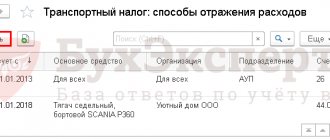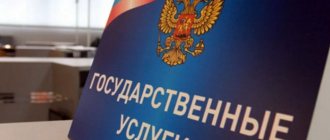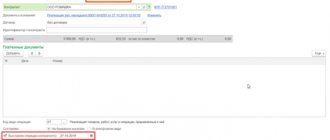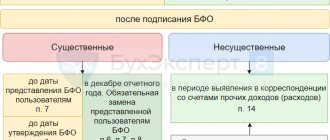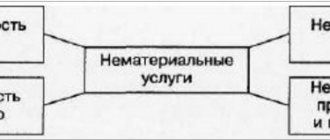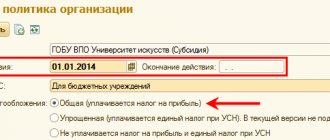| A busy schedule prevents you from attending professional development events? We found a way out! |
Consultation provided on August 26, 2015.
When submitting supporting documents for a business trip, the accountable person presented among the documents a railway ticket that was not used due to being late for the train. The car (taxi) in which the posted employee got to the railway station broke down along the way, which caused the employee to be late for the train. Next, it became necessary to purchase a new travel document, but it was not possible to return the unused travel document. Management decided to reimburse these expenses to the accountable person.
How to reflect the amount of an unused ticket, including the amount of VAT, in accounting and tax accounting? Is it necessary to withhold personal income tax from an accountable person?
On this issue we take the following position:
Organization in the situation under consideration:
1) does not have the right to deduct, as well as reflect as expenses in tax accounting, the amount of VAT allocated in a railway ticket purchased and not used by the employee;
2) on the date of approval of the advance report, will be able to reflect in accounting as expenses for ordinary activities the cost of the ticket purchased and not used by the employee, including VAT, compensated to the employee;
3) on the date of approval of the advance report if the requirements of paragraph 1 of Art. 252 of the Tax Code of the Russian Federation will be able to reflect in tax accounting, as part of other expenses associated with production and sales, the cost of a ticket purchased and not used by the employee, excluding VAT, compensated to the employee;
4) must not withhold personal income tax when paying compensation to an employee for an unused ticket.
Justification for the position:
Legal aspects
Based on Art. 167 of the Labor Code of the Russian Federation, when an employee is sent on a business trip, he is guaranteed reimbursement of expenses associated with it. If sent on a business trip, the employer is obliged to reimburse the employee for travel expenses; expenses for renting residential premises; additional expenses associated with living outside the place of permanent residence (per diem); other expenses incurred by the employee with the permission or knowledge of the employer. In this case, the procedure and amount of reimbursement of expenses related to business trips are determined by a collective agreement or a local regulatory act of the employing organization (Article 168 of the Labor Code of the Russian Federation).
VAT
By virtue of clause 1, 7 tbsp. 171 of the Tax Code of the Russian Federation, the taxpayer has the right to reduce the total amount of calculated VAT by the amount of tax paid on business trip expenses (travel expenses to the place of business trip and back, including expenses for the use of bedding on trains, as well as expenses for renting residential premises) and entertainment expenses accepted for deduction when calculating corporate income tax. At the same time, from the letter of the Federal Tax Service of Russia dated May 21, 2015 N ГД-4-3/ [email protected] it follows that the requirement to take into account expenses incurred when forming the tax base for income tax is also relevant in relation to business trip expenses.
One of the mandatory conditions for deducting VAT amounts presented to the taxpayer when purchasing goods (work, services), property rights in the territory of the Russian Federation is the registration of these goods (work, services), property rights (second paragraph of clause 1 of Art. 172 of the Tax Code of the Russian Federation). This provision also applies to VAT amounts paid on business travel expenses.
Thus, deductions of VAT amounts allocated in a railway ticket purchased by a posted employee are possible only when transportation services are provided and the corresponding expenses are taken into account.
A railway ticket in itself only certifies the conclusion of a contract for the carriage of a passenger (clause 2 of Article 786 of the Civil Code of the Russian Federation), but not the fact of provision of transportation services. In this regard, we believe that the organization in the situation under consideration will not be able to deduct the amount of VAT allocated to the railway ticket not used by the employee.
We have not found any official explanations on this issue. The organization must be prepared to defend a different position in court. At the same time, from the resolution of the Ninth Arbitration Court of Appeal dated January 15, 2009 N 09AP-17459/2008, it follows that the taxpayer’s possession of used travel tickets is not a prerequisite for deducting VAT in relation to actually paid transportation services, but in the presence of an invoice.
In our opinion, the organization will not be able to take into account the amount of VAT paid when purchasing a travel ticket, which is not subject to deduction, in tax accounting. Let me explain.
According to paragraph 1 of Art. 170 of the Tax Code of the Russian Federation, VAT amounts charged to the taxpayer upon the acquisition of goods (work, services), property rights, unless otherwise established by the provisions of Chapter 21 of the Tax Code of the Russian Federation, are not included in expenses accepted for deduction when calculating corporate income tax, except for the cases provided for clause 2 art. 170 Tax Code of the Russian Federation. At the same time, the norms of paragraph 2 of Art. 170 of the Tax Code of the Russian Federation in this case are not subject to application, and other norms of Chapter 21 of the Tax Code of the Russian Federation do not establish exceptions for the organization to the rule established by paragraph 1 of Art. 170 of the Tax Code of the Russian Federation (see also letter of the Ministry of Finance of Russia dated March 19, 2012 N 03-03-06/4/20).
E-tickets
Electronic tickets have a special structure and form, which are approved by departmental regulations.
Thus, the form of electronic railway travel documents was approved by Order of the Ministry of Transport of Russia dated August 21, 2012 No. 322 (hereinafter referred to as Order No. 322), and the form of electronic air tickets was approved by Order of the Ministry of Transport of Russia dated November 8, 2006 No. 134 (hereinafter referred to as Order No. 134). When purchasing an electronic railway ticket, the passenger is given a control coupon, which is an extract from the automated control system for passenger transportation on railway transport. This coupon (we emphasize that it is the coupon that is part of the electronic ticket) in accordance with clause 2 of Order No. 322 is recognized as a document of strict accountability, that is, BSO.
When purchasing an electronic air ticket, an itinerary receipt is issued and issued to the passenger - an extract from the automated information system for registration of air transportation, recognized as a strict reporting document by virtue of clause 2 of Order No. 134. And upon check-in for the flight, the passenger also receives a boarding pass, which confirms the very fact of transportation. It indicates the initials and surname of the passenger, flight number, departure date, boarding deadline for the flight, boarding gate number and seat number on board the aircraft (clause 84 of Order of the Ministry of Transport of Russia dated June 28, 2007 No. 82).
Due to the fact that both documents - the control coupon and the itinerary receipt - are recognized by the BSO, each of them must contain mandatory information. Which one is shown in the diagram.
“On the establishment of forms of electronic travel documents (tickets) for railway transport.” “On establishing the form of an electronic passenger ticket and baggage receipt in civil aviation.”
In order to correctly reflect the cost of electronic tickets in tax accounting, an accountant needs to know some of the nuances associated with these travel documents. Let's start by recognizing the costs of their purchase as tax expenses.
Corporate income tax
The object of taxation for income tax (hereinafter referred to as the Tax) for Russian organizations that are not members of a consolidated group of taxpayers is profit, which is defined as the difference between the income they receive and the amount of expenses incurred, determined in accordance with Chapter 25 of the Tax Code of the Russian Federation (clause 1 Article 247 of the Tax Code of the Russian Federation). Accordingly, the tax base for the Tax for this category of taxpayers is recognized as the monetary expression of profit, defined as the difference between the income they received and the expenses incurred (clause 1 of Article 274 of the Tax Code of the Russian Federation).
According to paragraph 1 of Art. 252 of the Tax Code of the Russian Federation, for the purposes of Chapter 25 of the Tax Code of the Russian Federation, the taxpayer reduces the income received by the amount of expenses incurred (except for the expenses specified in Article 270 of the Tax Code of the Russian Federation). Expenses are recognized as justified (economically justified) and documented expenses (and in cases provided for in Article 265 of the Tax Code of the Russian Federation, losses) incurred (incurred) by the taxpayer. In this case, any expenses are recognized as expenses, provided that they are incurred to carry out activities aimed at generating income.
Expenses, depending on their nature, as well as the conditions for implementation and areas of activity of the taxpayer, are divided into expenses associated with production and sales, and non-operating expenses (clause 2 of Article 252 of the Tax Code of the Russian Federation).
Expenses for business trips, in particular for an employee’s travel to the place of business trip and back to the place of permanent work, can be taken into account by taxpayers as part of other expenses associated with production and sales, on the basis of paragraphs. 12 clause 1 art. 264 Tax Code of the Russian Federation. As noted in the letter of the Ministry of Finance of Russia dated December 21, 2007 N 03-03-06/1/884, the list of travel expenses provided for by this norm is closed.
The norms of the Tax Code of the Russian Federation do not specify whether, on the basis of paragraphs. 12 clause 1 art. 264 of the Tax Code of the Russian Federation takes into account the costs associated with the purchase of a travel ticket that has not been used and has not been returned by a business traveler.
From the letter of the Ministry of Finance of Russia dated April 14, 2006 N 03-03-04/1/338, it follows that an organization has the right to take into account, when determining the tax base for the Tax, the costs of purchasing an air ticket that was not used due to a change in the return date from a business trip and is not subject to return by a business traveler. (for additional information, see letter of the Ministry of Finance of Russia dated May 2, 2007 N 03-03-06/1/252).
From the decisions of the FAS of the North-Western District dated 07/09/2009 in case No. A21-6746/2008, the FAS of the Volga-Vyatka District dated 03/24/2006 N A28-10790/2005-233/15, in our opinion, also shows the possibility of qualifying expenses for reimbursement to a posted employee of the costs of an unused travel ticket as business trip expenses and their accounting when forming taxable profit on the basis of paragraphs. 12 clause 1 art. 264 Tax Code of the Russian Federation.
Along with this, it should be taken into account that the list of expenses that can be taken into account for profit tax purposes is open (see, for example, paragraph 49, paragraph 1, Article 264, paragraph 20, paragraph 1, Article 265 of the Tax Code of the Russian Federation), which means the possibility of recognizing in tax accounting any costs that meet the requirements of paragraph 1 of Art. 252 of the Tax Code of the Russian Federation and not directly mentioned in Art. 270 Tax Code of the Russian Federation.
Norms Art. 270 of the Tax Code of the Russian Federation does not contain a direct prohibition on the inclusion in the calculation of the tax base for the Tax of expenses for compensation of travel tickets purchased by a business traveler and subsequently not used or returned to him. In this regard, taking into account that the business trip actually took place, and also taking into account clause 7 of Art. 3, paragraph 4 art. 252 of the Tax Code of the Russian Federation, we believe that these expenses can be recognized in tax accounting on the basis of either paragraphs. 12, or paragraphs. 49 clause 1 art. 264 of the Tax Code of the Russian Federation on the date of approval of the advance report (clause 5, clause 7, article 272 of the Tax Code of the Russian Federation), subject to their compliance with the criteria specified in clause 1 of Art. 252 of the Tax Code of the Russian Federation.
To assess the implementation of the provisions provided for in paragraph 1 of Art. 252 of the Tax Code of the Russian Federation, it is advisable to take into account the positions expressed by judges in the rulings of the Constitutional Court of the Russian Federation dated June 4, 2007 N 320-O-P and N 366-O-P, the resolution of the Plenum of the Supreme Arbitration Court of the Russian Federation dated October 12, 2006 N 53, as evidenced, for example, by letters Ministry of Finance of Russia dated 05/26/2015 N 03-03-06/1/30165, dated 02/06/2015 N 03-03-06/1/4993, dated 02/10/2010 N 03-03-05/23, dated 02/02/2010 N 03-03-05/14. In particular, it follows from them that the validity of expenses taken into account when calculating the tax base should be assessed taking into account circumstances indicating the taxpayer’s intentions to obtain an economic effect as a result of real business or other economic activity. In this case, we are talking specifically about the intentions and goals (direction) of this activity, and not about its result.
Since the purchase of tickets in the situation under consideration was carried out for the purpose of the employee’s travel on a business trip, we believe that the expenses incurred by the organization should be considered as related to the implementation of activities aimed at generating income.
As we understand from the text of the question, the fact that an employee purchased a ticket has documentary evidence (an unused ticket is attached to the advance report), therefore, in our opinion, if there are approved advance reports and documents confirming compensation for expenses incurred by the employee, the requirement for documentary evidence of the organization’s expenses is also should be considered completed.
We believe that in this case, it is advisable for the organization to document not only the fact of expenses being incurred, but also their justification (economic justification). The list of such documents is open. In particular, we believe that it is advisable for the organization to justify the inappropriateness (impossibility) of returning an unused ticket.
Electronic ticket for air travel
According to paragraphs 1, 3 of Art. 105 of the Air Code of the Russian Federation, a ticket refers to transportation documents used in the provision of services for air transportation of passengers, which can be issued electronically.
Ticket forms, as well as extracts from the automated information system for issuing air transportation, are established by the federal executive body authorized in the field of transport (clause 4 of Article 105 of the RF Air Code).
For air transportation, an electronic passenger ticket and a baggage receipt are documents used to certify the contract for the carriage of passengers and baggage, in which information about the air carriage of passengers and baggage is presented in electronic digital form (clause 1 of the Appendix to the Order of the Ministry of Transport of Russia dated November 8, 2006 N 134).
An electronic air ticket has a specific structure, including a flight coupon, control coupon, agent coupon and route/receipt (extract from the automated information system for air travel registration). The required ones are the flight coupon and itinerary/receipt. The route/receipt includes various information, but only the tariff and the final cost of transportation have a cost characteristic.
According to clause 2 of Order of the Ministry of Transport of Russia N 134, the route/receipt of an electronic passenger ticket and baggage receipt (extract from the automated information system for registration of air transportation) is a document of strict reporting and is used for organizations to carry out cash payments and (or) payments using payment cards without use of cash register equipment.
Thus, the itinerary/receipt is the most important part of the electronic ticket. It is issued and issued (sent electronically via the information and telecommunications network) to the passenger.
The electronic ticket itself is generated using an automated system, so it requires one more detail - a unique electronic ticket number.
Personal income tax
According to paragraph 3 of Art. 217 of the Tax Code of the Russian Federation are not subject to taxation (exempt from taxation) personal income tax all types of compensation payments established by the current legislation of the Russian Federation, legislative acts of the constituent entities of the Russian Federation, decisions of representative bodies of local self-government (within the limits established in accordance with the legislation of the Russian Federation), related, in particular, to reimbursement of expenses incurred by the taxpayer and the performance of his work duties. At the same time, it is clarified that when the employer pays the taxpayer expenses for business trips both within the country and abroad, income subject to taxation does not include actually incurred and documented targeted expenses for travel to the destination and back.
In our opinion, by virtue of clause 3 of Art. 217 of the Tax Code of the Russian Federation are not subject to personal income tax and the amount of compensation received by the employee for the actual targeted expenses incurred by him for the purchase of a subsequently unused and unreturned ticket for travel to the place of business trip, paid on the basis of the requirements of the Labor Code of the Russian Federation.
Therefore, the organization should not withhold personal income tax when paying this compensation.
We have not found any official explanations or judicial materials on this issue.
Purchase of an electronic ticket by an employee for cash on passenger transport
The forms of electronic travel documents (tickets) for railway transport are approved by Order of the Ministry of Transport of Russia dated August 21, 2012 N 322 (hereinafter referred to as Order N 322).
According to clause 2 of the Order, the control coupon of an electronic travel document (ticket) (extract from the automated control system for passenger transportation on railway transport) is a document of strict accountability and is used for organizations and individual entrepreneurs to carry out cash payments and (or) payments using payment cards without use of cash register equipment.
Therefore, the rationale for applying a deduction for an electronic ticket on passenger transport is similar to the situation associated with the purchase of an electronic ticket.
Taking into account the above, we can conclude that if in an electronic passenger ticket printed on paper, the amount of VAT is highlighted as a separate line, then the tax deduction is legal.
In this case, the control coupon (extract from the automated system) with the VAT amount highlighted in a separate line is registered in the purchase book and is the basis for accepting this VAT amount for deduction.
